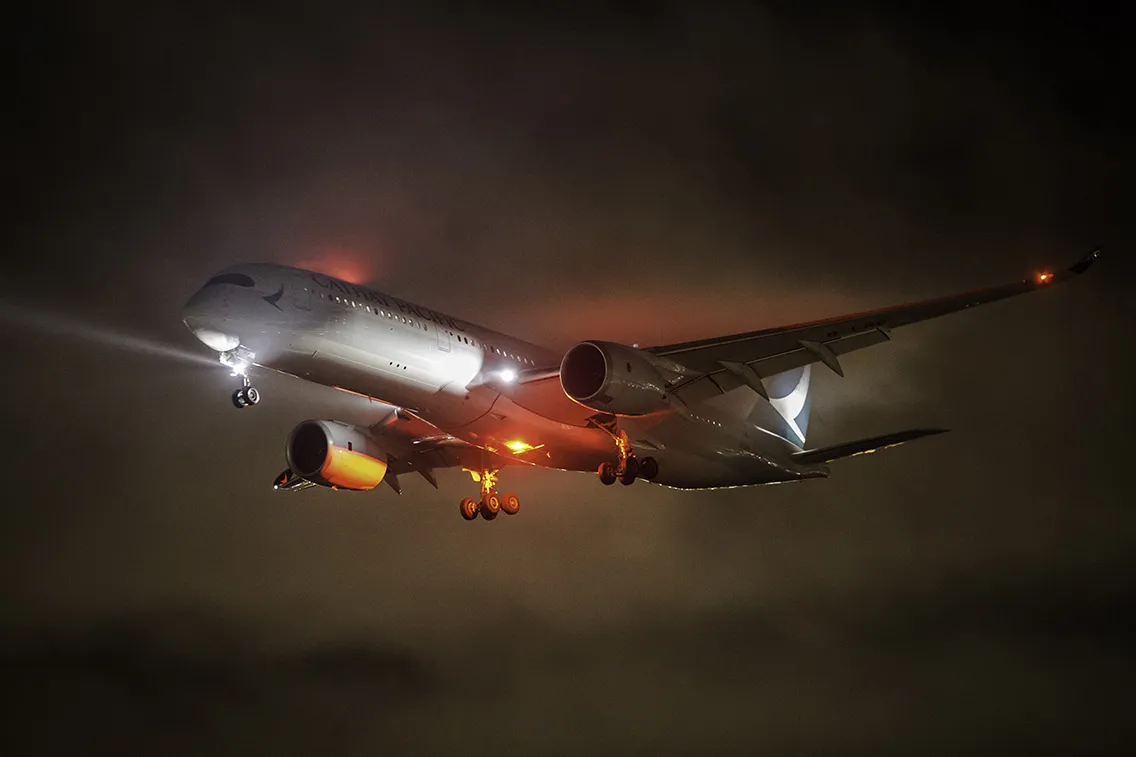
Qantas calls for Cathay codeshare rejection to be overturned
Jun 17, 2019

Qantas has urged the Australian Competition and Consumer Commission to reconsider its decision to reject a codeshare agreement with Cathay Pacific. The airline argues that the partnership would enhance competition and provide greater travel options for consumers, particularly in the Asia-Pacific region. Qantas emphasizes that the collaboration would benefit passengers by improving connectivity and efficiency, ultimately leading to lower fares. The airline believes that the rejection hinders opportunities for growth and innovation within the aviation sector. Qantas is appealing for a reassessment, highlighting the potential advantages of the proposed codeshare arrangement for both airlines and travelers.
In a recent development within the aviation industry, Qantas has urged the authorities to reconsider the rejection of the proposed codeshare agreement with Cathay Pacific. This codeshare agreement, if approved, would allow the two airlines to offer more seamless connections for passengers traveling between Australia and Hong Kong, enhancing the travel experience and increasing competition in the market.
The Importance of Codeshare Agreements
Codeshare agreements are essential for airlines as they enable them to expand their network without the need for additional flights. This collaboration allows airlines to share flight services under their respective brand names, providing passengers with more choices and flexibility. By combining resources, airlines can also reduce operational costs and improve service efficiency.
Qantas' Position on the Rejection
Qantas has expressed disappointment over the initial rejection of the codeshare agreement, arguing that it would benefit travelers by increasing connectivity. The airline believes that the partnership with Cathay Pacific would lead to enhanced travel options for passengers, particularly for those flying between Australia and Asia. With both airlines offering complementary services, this collaboration could significantly improve the overall customer experience.
Potential Benefits of the Codeshare Agreement
There are several advantages to having a codeshare partnership between Qantas and Cathay Pacific:
| Benefit | Description |
|---|---|
| Increased Connectivity | Passengers can enjoy more flight options and schedules, making travel planning more convenient. |
| Cost Efficiency | By sharing resources, both airlines can operate more efficiently and reduce operational costs. |
| Enhanced Customer Experience | Travelers benefit from streamlined services, including checked baggage transfers and coordinated flight times. |
| Stronger Market Presence | Collaboration can help both airlines compete more effectively in the crowded Asia-Pacific market. |
Regulatory Concerns
Despite the potential benefits, regulatory bodies have raised concerns regarding the codeshare agreement. These concerns primarily focus on competition and market dominance. Authorities worry that such an agreement could limit choices for consumers and lead to higher prices in the long run. Qantas, however, argues that the partnership would not stifle competition but rather enhance it by providing more options to the traveling public.
Implications for Travelers
If the codeshare rejection is overturned, travelers can expect several positive changes:
- More frequent flights between major Australian cities and Hong Kong.
- Improved service coordination between airlines, making transfers smoother.
- Access to a wider range of destinations through a single booking process.
Moreover, the collaboration is expected to boost tourism between Australia and Hong Kong, benefiting both economies. With increased flight options, more travelers may choose to visit Australia, leading to a rise in tourism revenue.
The Path Forward
As Qantas continues to advocate for the overturning of the codeshare rejection, it remains to be seen how regulatory bodies will respond to their appeal. The airline has committed to working closely with the authorities to address any concerns and demonstrate the potential benefits of the partnership.
In the meantime, Qantas is encouraging its customers to voice their support for the codeshare agreement. Through customer engagement and public relations efforts, the airline aims to highlight the importance of this collaboration for the future of air travel in the region.
Conclusion
In conclusion, Qantas' call for the overturning of the Cathay codeshare rejection underscores the importance of collaboration in the airline industry. As travelers increasingly seek convenience and flexibility, codeshare agreements provide a vital solution. By working together, airlines can enhance their services, improve customer experiences, and foster a competitive market that benefits everyone.
As the situation unfolds, industry stakeholders and travelers alike will be watching closely to see how this pivotal decision impacts the future of air travel between Australia and Asia.
Related Articles

Explore Thailand: The Best Islands to Visit for Paradise, Adventure, and Relaxation

The Ultimate Guide to the Best Islands in Thailand for Your Next Getaway

Do babies need passports? How to get a passport for a newborn

How to get a U.S. passport fast: here’s how to expedite the process

What is Mobile Passport Control: 5 reasons why you should use it

SENTRI vs. Global Entry: A detailed guide

Do you need a passport to go to the Bahamas? Let’s find out

Do you need a passport to go to Mexico? A detailed guide

Do you need a passport to go to Canada? We got the answer

Do You Need a Passport for a Cruise: An Essential Travel Guide

Booster Seat Requirements: All the Rules to Follow in Your Rental Car

What Are the World’s Most Powerful Passports, and How Does Yours Rank?

How to Take a Passport Photo at Home: A Helpful Guide

You've got to have heart! Southwest's new livery

Your opinion: Should water be free on low cost carriers?

Young women bolder than guys as solo travellers
